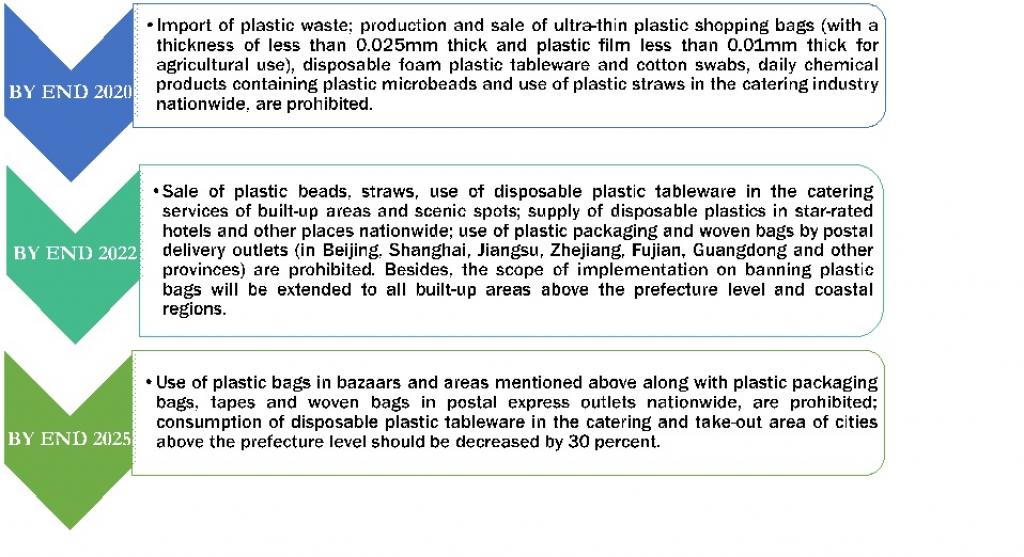

However, it must ensure fair practices to achieve environmentally-driven, economically viable expectations



China's Ministry of Ecology and Environment and the National Development and Reform Commission on January 19, 2020 issued a policy to phase out the production, sale, and use of single-use plastic products by 2025.
In January 2018, China had implemented the ‘National Sword’ Policy that banned the entry of 24 categories of foreign waste like plastics, textiles and mixed paper into its borders.
About 90 per cent of all plastic found in the world's oceans is carried by just 10 rivers. Among these, six rivers — Yangtze, Yellow, Hai He, Zhujiang, Amur and Mekong — all of which originate in China.
China has the highest plastic marine debris in the world among 20 such countries — Indonesia, the Philippines, Vietnam, Sri Lanka, Thailand, Egypt, Malaysia, Nigeria, Bangladesh, South Africa, India, Algeria, Turkey, Pakistan, Brazil, Myanmar, Morocco, North Korea and the United States. The debris ranges from1.32-3.53 MMT (million metric tonnes) per year.
Not surprisingly then, the proportion of mismanaged plastic waste in China — 8.82 MMT/year — is also significantly high. China’s waste generation rate is 1.10 kg/ppd (person per day), out of which 11 per cent is plastic waste. The main factors attributed to this are increasing population, changing lifestyles and the development of new business models.
So the Chinese local authority joined the global shift to restrict the throw-away culture by phasing out plastic items like straws, microbeads, packaging films / materials, cutleries and carry bags.
About the notification
The new guidelines state that the key sources of plastic pollution in the country like throw-away habits, orders sold via Chinese e-commerce outlets (such as Alibaba, JD.com, Meituan etc) as well as express delivery will be restrained in three phases until 2025, as explained in the chart below:

Key recommendations
For effective implementation of the policy, the circular also incorporates important instructions like:
Implementation time
There is no doubt that the authorities have meticulously drafted policy to phase out a deluge of soiled and contaminated plastic materials from the country’s air, water, and soil. However, it could be a hard sell for a society that is used to convenience.
To achieve environmentally-driven and economically viable expectations, China must ensure fair and consistent practices along with the legal compliances in this fight against plastic pollution.
We are a voice to you; you have been a support to us. Together we build journalism that is independent, credible and fearless. You can further help us by making a donation. This will mean a lot for our ability to bring you news, perspectives and analysis from the ground so that we can make change together.
India Environment Portal Resources :

Comments are moderated and will be published only after the site moderator’s approval. Please use a genuine email ID and provide your name. Selected comments may also be used in the ‘Letters’ section of the Down To Earth print edition.